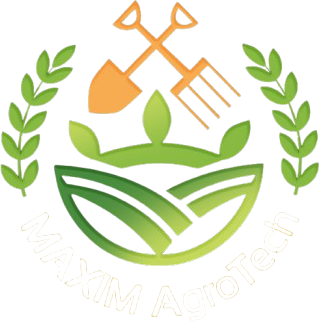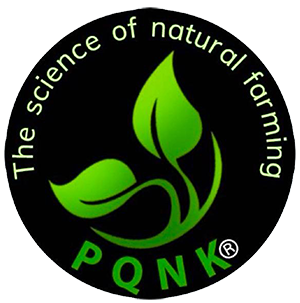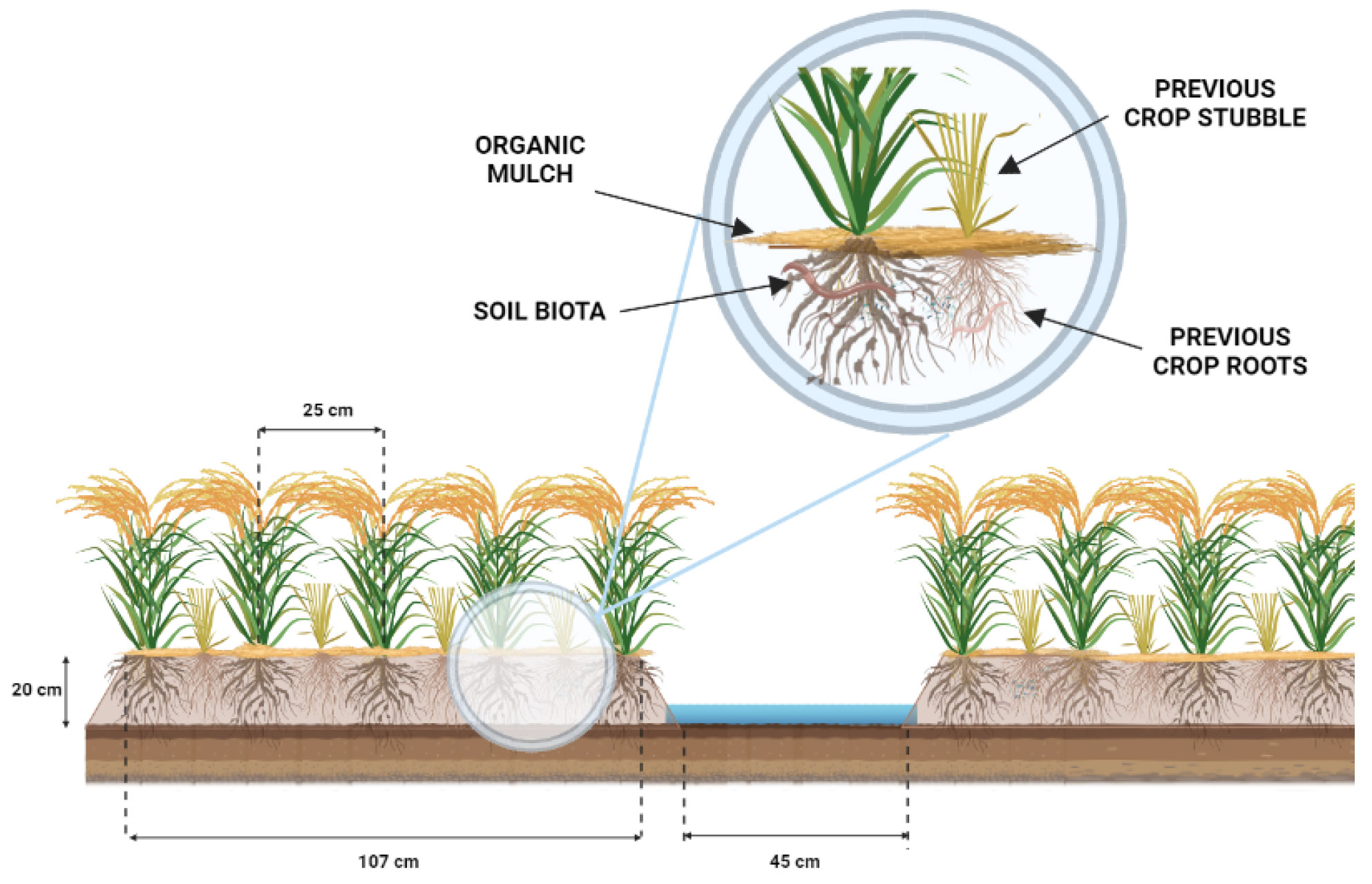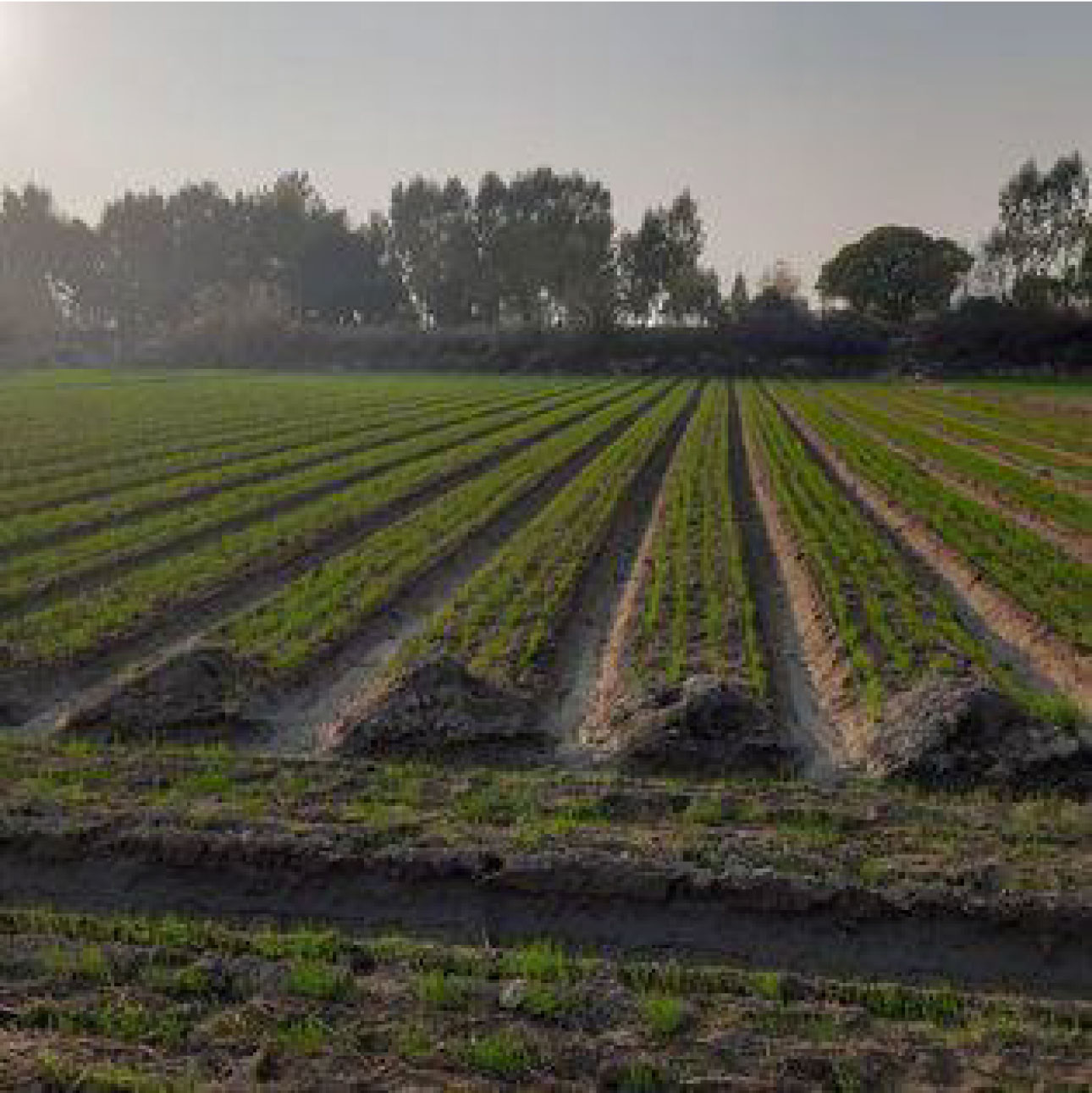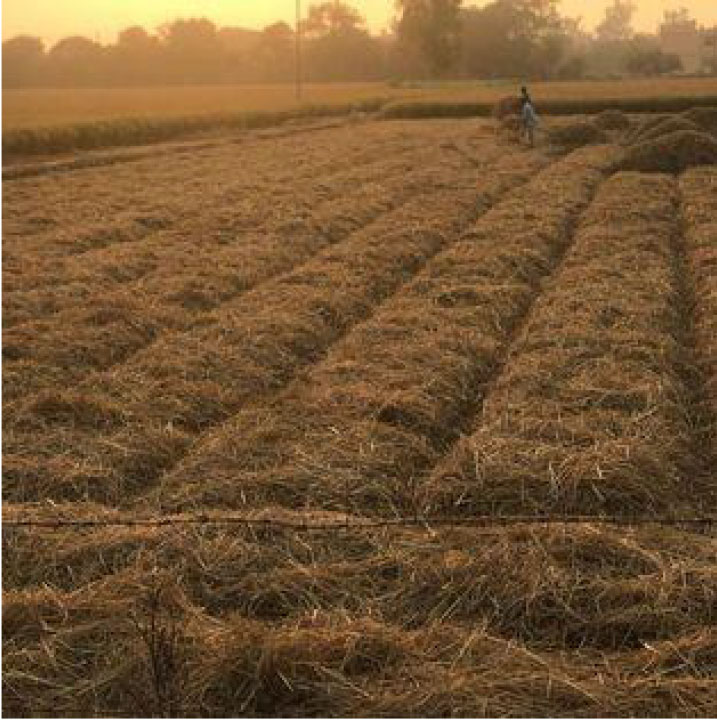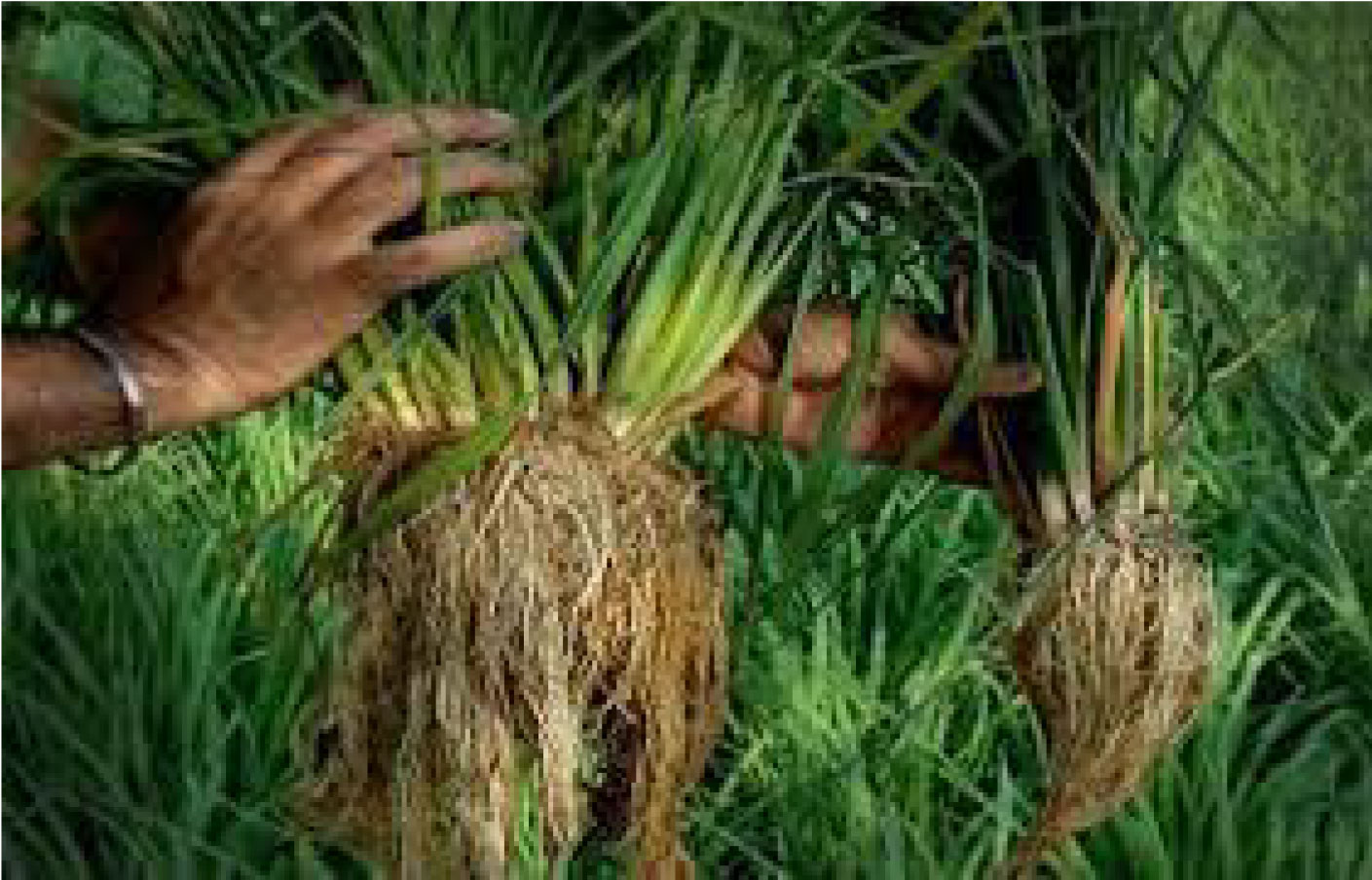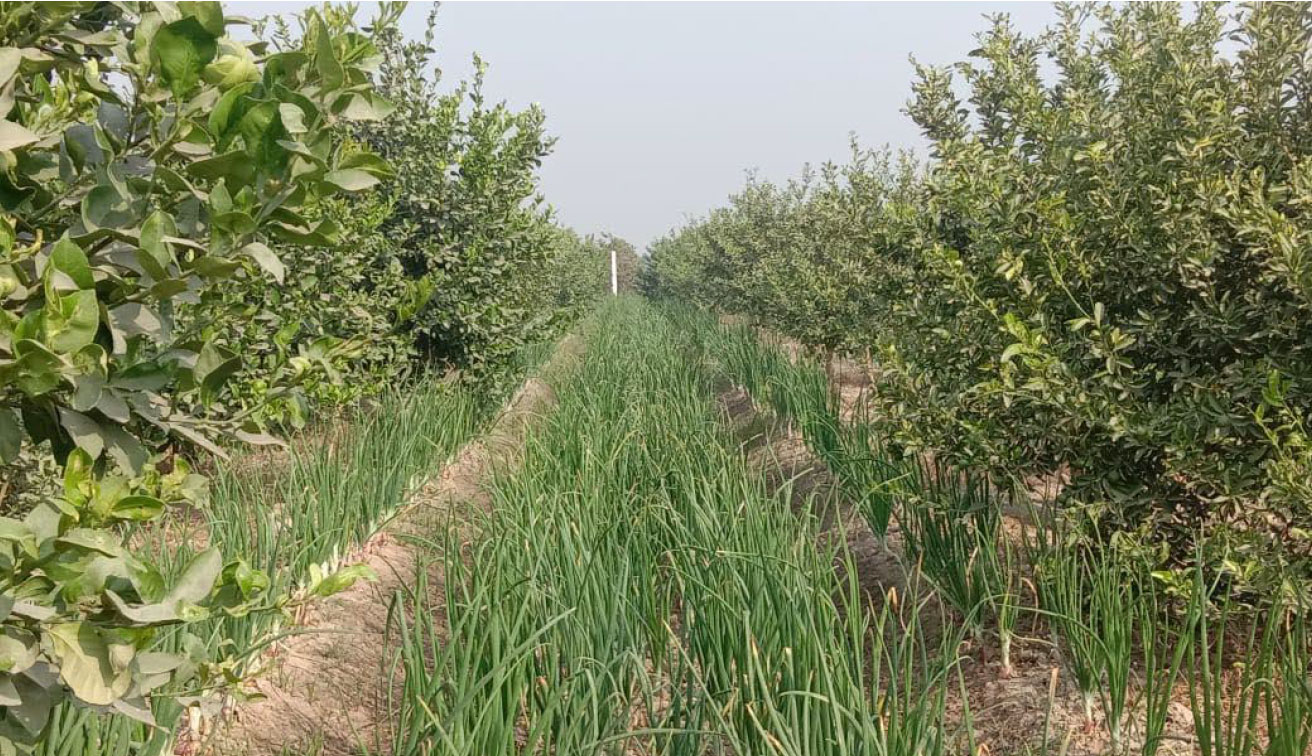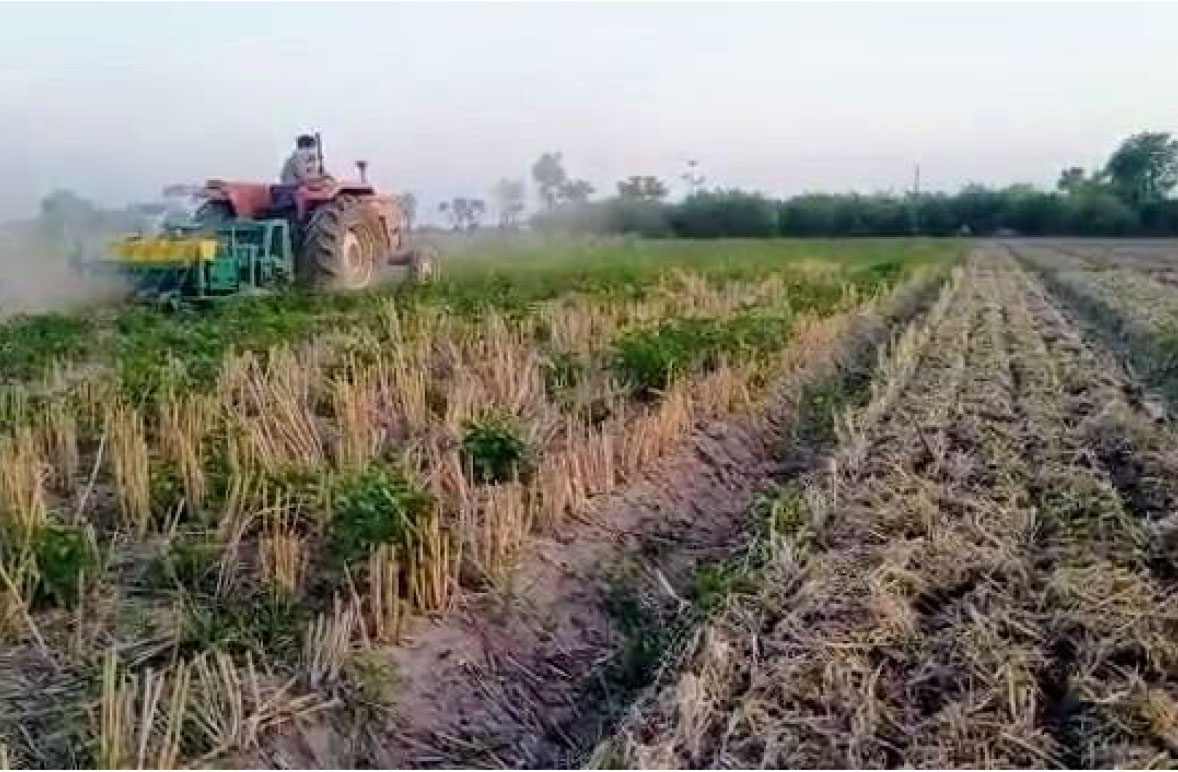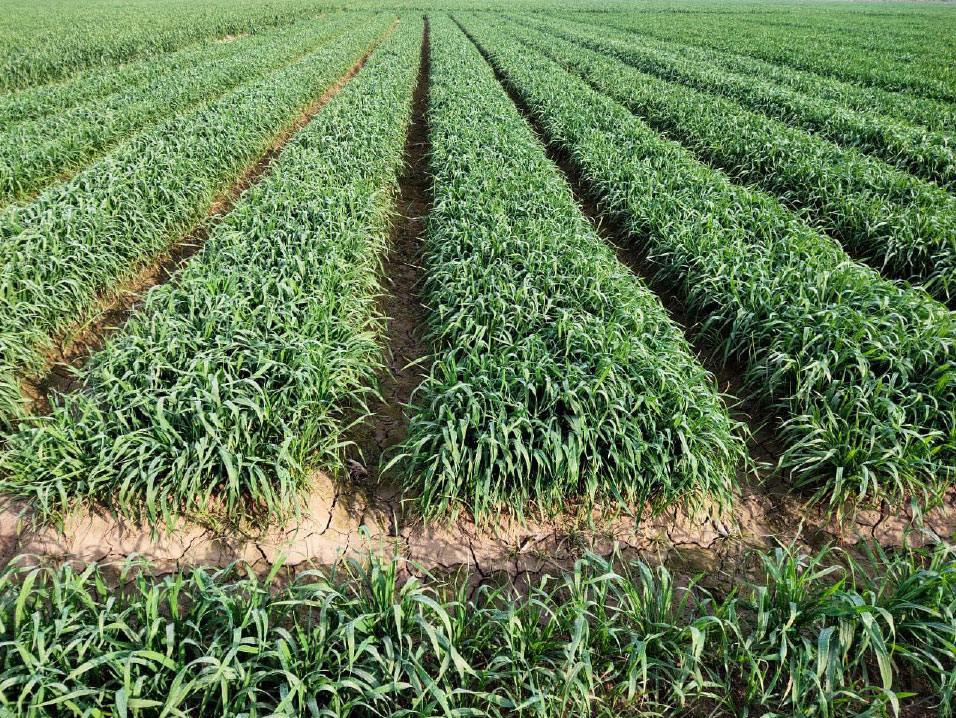PQNK is the abbreviation of Paedar Qudratti Nizam Kashatqari (to be pronounced as picnic) which means sustainable natural farming system in Urdu and it is also referred to as Paradoxical Agriculture. Asif Sharif has conceptualised PQNK through first-hand experience on his own land in the Indo-Gangetic Plains of Pakistan. He later founded Pedaver, a company that works with thousands of farmers to disseminate the PQNK system and develop appropriate mechanisation. Initially, after identifying that inundation, soil disturbance, and bare land are contrary to the natural processes of soil fertility and vegetation, Mr Asif developed the raised bed planting system. Rice was the first crop tested on Asif’s raised beds as conventionally it is grown under flooded conditions. This was to demonstrate that water serves as a nutrient carrier, and only the water absorbed by the roots and transpired from the leaves is needed for the plant development. At this stage, Asif came across the System of Rice Intensification (SRI) and gained insights into optimal plant population, i.e. row spacing and plant-to-plant distance. After achieving success by reducing rice plant density, the next objective was to maintain soil coverage. Rice crop residues had been utilised for this purpose. Soon PQNK developed into a more comprehensive farming method for all crops and trees that combines SRI and Conservation Agriculture (CA), with natural farming as an overarching principle. The PQNK approach replicates natural dynamics in agricultural production systems, like avoiding the use of synthetic amendments, keeping upland for vegetation and lowland for water supply and drainage of excessive water, as shown below

